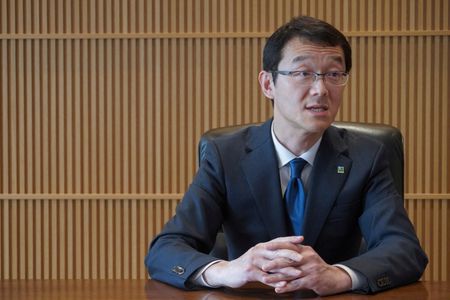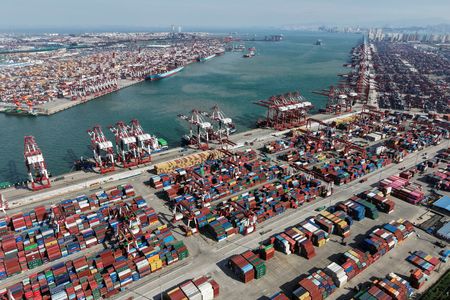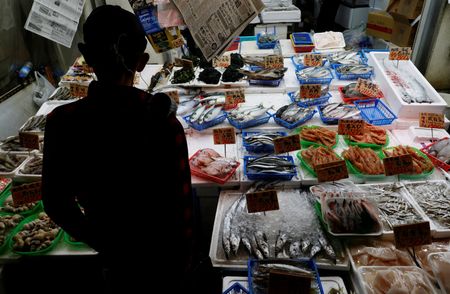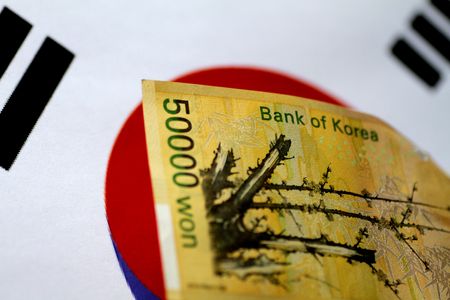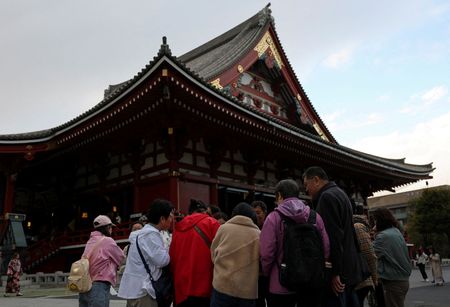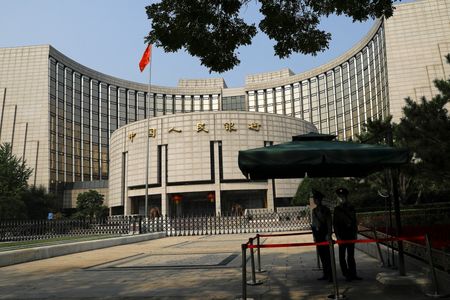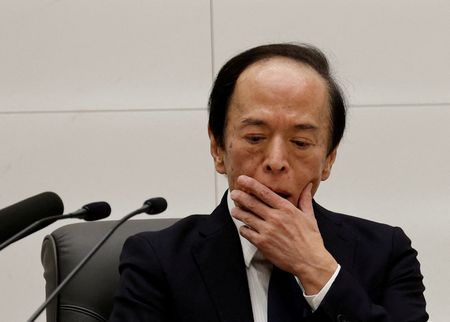By Anton Bridge
TOKYO (Reuters) -Japan’s Norinchukin Bank, hit hard by mammoth losses last year, logged a small profit for a second straight quarter and said that it has begun increasing its investments in securities.
But the bank, one of the world’s largest investors in collateralised loan obligations (CLOs), also noted that markets, particularly private credit markets, had been volatile of late and a cautious approach to new investment was warranted.
“We are beginning to see concern that there’s overheating in credit market, particularly private credit markets,” Chief Executive Taro Kitabayashi told a press briefing.
“It’s not that everyone will go under, but that as high interest rates have persisted in the U.S., we are starting to see winners and losers,” he added.
The bank reported net profit of 26 billion yen ($167 million) for July-September, compared with a 481 billion yen loss for the same period a year earlier.
A joint venture between Norinchukin and Mitsui & Co that had exposure to the bankrupt auto parts maker First Brands Group revised down its net profit forecast for this financial year by 36.4 billion yen. This has not yet been fully fed into Norinchukin’s results, Chief Financial Officer Masaki Nagano said.
Last year, the bank posted an annual loss of $12.6 billion, brought about by huge losses in U.S. and European sovereign bonds that crashed in value when interest rates rose from 2022 and stayed higher for longer than it anticipated.
Norinchukin is Japan’s primary financial institution for farm, forestry and fishery cooperatives. It earns most of its money through returns from securities investment rather than lending.
It has boosted its investments in CLOs, which grew to 9.7 trillion yen at the end of September, up nearly 50% from 6.5 trillion yen a year prior.
Norinchukin may increase its CLO holdings in the short term, Nagano said, adding that in the medium and long term the bank expects CLOs as a proportion of its assets to stay broadly flat.
Norinchukin, which still had 1.14 trillion yen of unrealised losses in its bond portfolio at end-September, maintained its full-year profit forecast of 30 billion to 70 billion yen.
The bank has said it will use bond sale proceeds for new investment, including in Japanese government bonds, equities, real estate, private equity and infrastructure.
($1 = 155.3700 yen)
(Reporting by Anton Bridge; Editing by Edwina Gibbs)

